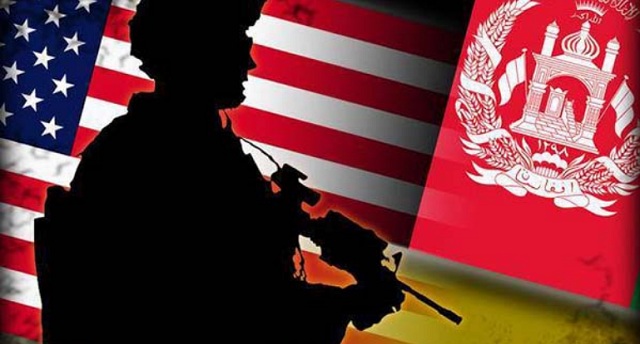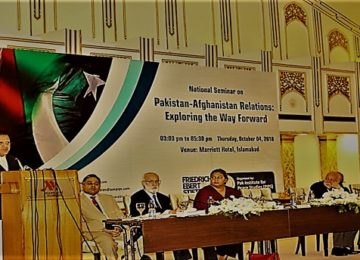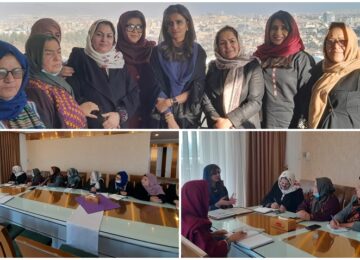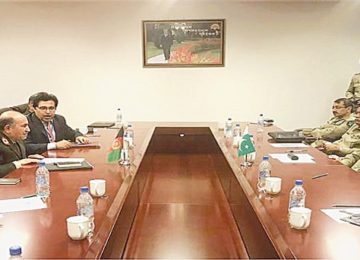January 25, 2019.
The United States (US) and Afghan Taliban are heading towards a negotiated settlement of the Afghan decades-long conflict and will reach an agreement soon whereas, the Afghan Taliban will have to sit with the Afghan government to materialise the intra-Afghan agreement.
These views were expressed by International Relations Expert Dr Manzoor Khan Afridi while speaking at the 20th Pak-Afghan Youth Dialogue organised by the Islamabad-based Afghan Studies Center here on Thursday.
He said that Pakistan is doing everything in its capacity to set the table between the Taliban and Afghan government, as Pakistan believes in an Afghan-led and Afghan-owned peace process for lasting peace and development.
Dr Afridi said that whatever the flaws may be in the electoral process, the Afghan government represents the Afghan people; it is the only voice they have; hence, not taking Afghan government on board is out of question.
“Afghanistan is passing through the toughest phase in recent decades. Last year was the bloodiest; yet for the first time in a very long time, there also lies a window of opportunity for making history by harnessing peace through talks,” he added.
Dr Afridi believed that after US and Afghan Taliban reached an agreement, the Taliban will be asked to give up arms and become part of the political process along with the Afghan government.
He was very optimistic that this time, there may be some tangible gains in terms of achieving peace.
Though, he cautioned about the perpetuating threat matrix within Afghanistan which poses challenges to the country’s stability – involving firstly militancy by the Taliban, Islamic State – Khorasan Province (IS-KP), drug trafficking, the trust deficit between Pakistan and Afghanistan, proxy wars, and limitations of the Afghan National Security Forces (ANSF).
Besides, narco-economy is also a significant factor in the perpetuating Afghan conflict as it is the financial life-line for militants.
He said that that illegal the Afghan opiate economy is more than $2.8 billion which is 13 per cent of Afghanistan’s total GDP. The estimated total worth of Afghan opium in the international market is around $61 billion. This is one of the major funding sources for militancy.
Dr Afridi claimed that Taliban generates $400 million from drug economy, adding that the US has spent over $68 billion on ANSF since 2001 but results are dismal.
On the other hand, he said that China, in the last few years has emerged as a key player to champion peace in Kabul. This is because Afghanistan is the pivot of the Chinese economic game plan – what Beijing is calling the revival of ancient Silk Road through multiple corridors.
Hence, stability in Kabul for China has gained key importance as well as for Pakistan and Central Asia as these corridors span over the latter’s geography.
He said that Uzbekistan, Turkmenistan, Tajikistan, Pakistan, Iran, and China directly share borders with Afghanistan; thus, these countries are directly associated with what happens in Afghanistan.
The impacts of Kabul’s instability on these countries are in terms of economic cost, drug trafficking, a rise in crime, an influx of refugees and illegal migrants, spillover effects of terrorism, renaissance of the Islamic Movement of Uzbekistan (IMU) and also, the emergence of IS-KP in recent years.
This coverage of Afghan Studies Center’s 20th Pak-Afghan Youth Dialogue appeared in PakistanToday on January 25, 2019.








